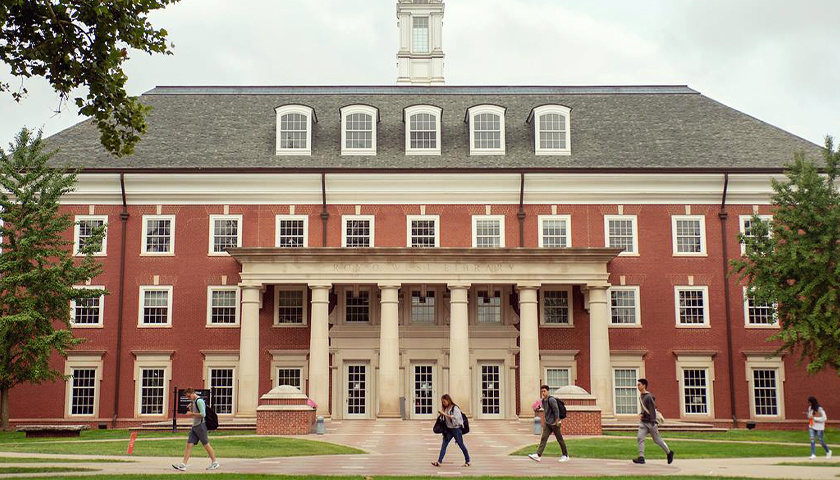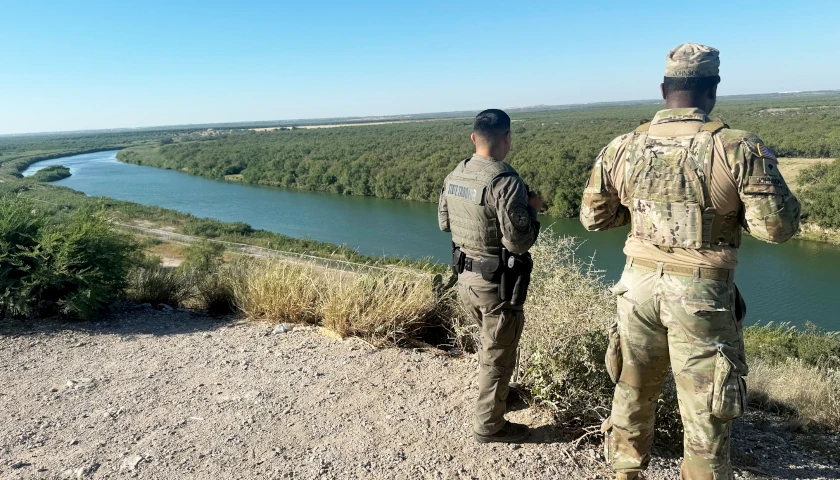by John Hirschauer
For the second straight year, survey data shows that a small private school in western Indiana is the nation’s worst college for free speech.
DePauw University again finished last in the 2021 College Free Speech Rankings, the second annual campus-speech-related survey and rankings project sponsored by the research firm College Pulse, the Foundation for Individual Rights in Education (FIRE), and RealClearEducation. More than 37,000 students at 159 colleges and universities participated in the survey, and their responses helped determine each school’s place in the 2021 rankings.
What contributed to DePauw’s low ranking? Survey results and student responses to open-ended survey prompts suggest that DePauw’s biggest speech-related challenge may be the censorious views of its students. Only 30% of DePauw students said it was “never acceptable” to use violence to stop a speech on campus, meaning more than two-thirds of students surveyed feels violence can be an appropriate response to disagreeable speech. Seventy-six percent of students surveyed said they would oppose allowing a speaker on campus who believed abortion should be illegal. Some students feel censorship is the appropriate response to speakers with “harmful” views.
“I do not hold views that are harmful to others so [self-censorship] is not a problem I face,” one DePauw student told pollsters.
Only seven percent of DePauw students reported having “never” felt unable to express their opinion on a subject.
Many DePauw students also lack confidence in the administration’s commitment to free speech. Only 57% of DePauw students felt the administration was likely to defend a speaker’s right to express himself in a speech-related controversy, compared to 89% of students surveyed at top-ranked Claremont McKenna College.
Students’ lack of confidence may stem from the administration’s inconsistent approach to speech issues. In the student handbook, DePauw tells students they “are free to examine and discuss all questions of interest to them and to express their opinions publicly and privately.” However, in its Electronic Communications and Acceptable Use Policy, the school prohibits students from making or otherwise transmitting “offensive comments” on their electronic devices.
DePauw is a private university and therefore is not required to protect students’ constitutional speech rights. Still, said FIRE’s Adam Goldstein, the school owes students consistency.
“There are three basic problems. One is that DePauw promises that ‘students are free to examine and discuss all questions of interest to them and to express their opinions publicly and privately,’” Goldstein told RealClearEducation. “So having made that promise, the second problem is that the terms ‘inappropriate’ and ‘offensive’ give a student no actual warning about what conduct is prohibited, because what any given administrator might consider ‘inappropriate’ or ‘offensive’ might change. And the third problem is that, whatever those words happen to mean on a given day, they mean something less than the freedom to ‘examine and discuss all questions of interest’ DePauw promises elsewhere in its handbook.”
RealClearEducation asked DePauw whether the school believed it was necessary to place limits on students’ expressive freedoms in order to achieve a more inclusive and equitable campus environment but did not receive a response.
Ultimately, the biggest problem for DePauw’s campus-speech culture may be its lack of ideological diversity. One DePauw student, asked by survey proctors whether he had ever felt unable to express his opinion on a subject for fear of peer, faculty, or administrative reprisal, gave a telling answer.
“I have rarely felt this way,” the student said, “because many of my professors and students surrounding me share my political views.”
On the other hand, a survey response from one self-described conservative student revealed a different experience. She said that her brother, also a conservative, “decided not to go to DePauw because of the lack of free speech here.”
“It’s unbelievable,” she added. “Two years ago, Condoleezza Rice came to speak and DePauw professors told their students not to attend the speech because they think she’s a war criminal. That behavior is the antithesis of free speech and liberal learning.”
– – –
John Hirschauer is a staff writer for the RealClear Foundation. Explore the College Free Speech Rankings at RealClearEducation.com/speech/
Photo “DePauw University Library” by DePauw University Libraries.





